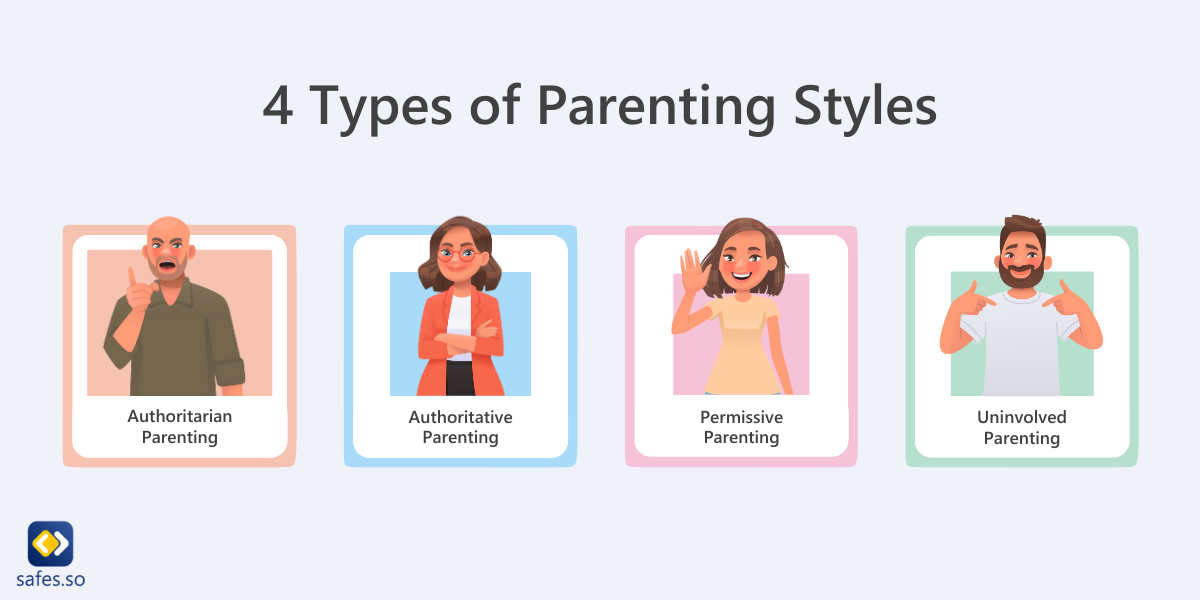Parenting is no easy feat. Every parent wants to raise their children to be kind, confident, and capable individuals. But the journey to achieving that looks different for everyone. That’s where the types of parenting come in. There isn’t a one-size-fits-all method, and understanding the various parenting types can help you find what works best for your family dynamic. In this article, we’ll dive into five well-known types of parenting styles, what makes each one unique, and how they might impact your child’s development.
Authoritative Parenting
Balance and Structure
Authoritative parenting is often considered the most effective of the different types of parenting. It strikes a balance between structure and nurturing. These parents set clear rules and expectations but are also warm, communicative, and supportive. Instead of demanding blind obedience, they encourage dialogue and explain the reasoning behind rules. Source
Encourages Independence
One of the defining characteristics of this parenting type is that it promotes independence. Children raised with authoritative parenting often develop strong self-esteem, social skills, and emotional regulation because they are taught to think for themselves within safe boundaries.
Authoritarian Parenting
Strict Rules and High Expectations
Authoritarian parenting is all about control and discipline. This parenting type is characterised by strict rules, high expectations, and little room for flexibility. Communication is typically one-way—from parent to child—and questioning authority is rarely tolerated.
Obedience Over Understanding
While this approach can lead to well-behaved children in the short term, it may also result in anxiety or low self-esteem due to the lack of emotional support and autonomy. Among all the types of parenting styles, authoritarian parenting leans the most towards discipline and the least towards empathy. Source
Permissive Parenting
Lenient and Indulgent
Permissive parents are the opposite of authoritarian ones. This parenting type is relaxed, lenient, and often indulgent. Rules are minimal, and children are given a great deal of freedom to make their own choices—even when they may not be ready for it.
Friendly But Not Firm
While this style may foster creativity and emotional openness, it can also lead to issues with authority and self-discipline. Among all types, permissive parenting tends to prioritise emotional bonding over structure, which may lead to behavioural challenges in the long run.
Uninvolved Parenting

Minimal Engagement
As the name suggests, uninvolved parenting is marked by a lack of emotional involvement and guidance. These parents provide basic needs like food and shelter, but are often disengaged in their child’s emotional and educational life. This parenting type might be unintentional—sometimes stemming from stress, mental health issues, or personal struggles.
Independence at a Cost
Children raised under this style might develop independence early, but often at the expense of emotional security and connection. Compared to other types of parenting styles, uninvolved parenting has the highest risk of negative developmental outcomes.
Gentle Parenting
Respect and Empathy
A newer entry among the different types of parenting, gentle parenting focuses on empathy, respect, and understanding. Parents who adopt this style aim to connect with their child emotionally rather than resort to punishment or control.
Guidance Over Discipline
This parenting type encourages parents to act as guides rather than enforcers. It values emotional intelligence and believes in modelling the behaviour parents want to see. As one of the more mindful types of parenting, it’s gaining popularity for its emphasis on mental well-being and long-term relationship building.
Summary!
Understanding the various types of parenting can help parents become more intentional in their approach. Whether you’re drawn to the structure of authoritative parenting or the empathy of gentle parenting, knowing the strengths and weaknesses of different types of parenting styles is the first step to becoming the parent your child needs. Every child is unique, and the most effective parenting type is one that adapts, listens, and evolves.
Hope you found this article helpful!
Also Read: Baby Crowning (Helpful And Free Guide)
Tinydale is on YouTube, Click here to subscribe for the latest videos and updates.
Follow Us: Facebook | Instagram | Twitter | Youtube | Pinterest





